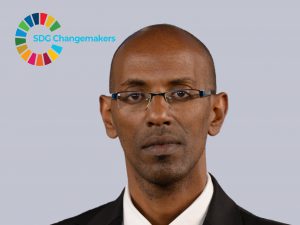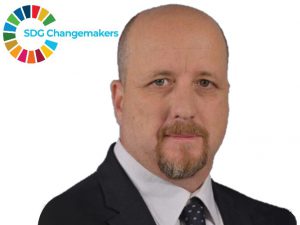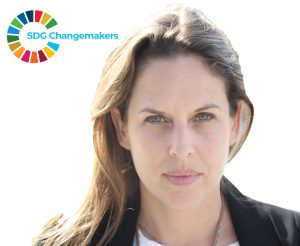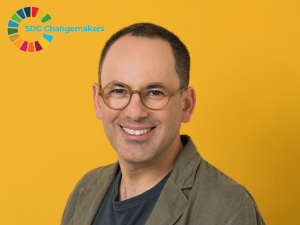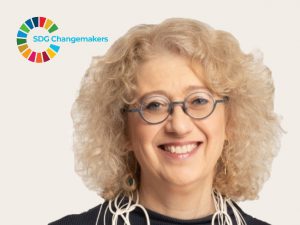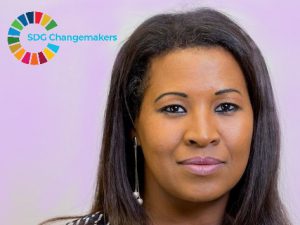Coordinator of the National Anti-Racism Unit, Israel Ministry of Justice
December 2016-September 2023
SII: Please briefly describe your work
AKZ: Since December 2016, I have been Coordinator of the Israel Justice Ministry’s National Anti-Racism Unit, established following a number of incidents involving police violence against Israelis of Ethiopian descent. These incidents led to large-scale civil protests that reflected the painful racism many Ethiopian Israeli Jews face in their day-to-day lives, including discriminatory profiling practices.
Attentive to the call of the protesters, the Israel Government established an Inter-Ministry Team that presented the Prime Minister with a report identifying ongoing practices of racism against the Ethiopian Jewish population in Israel. The report also made 53 recommendations, since implemented by various Government Ministries.
Today, the Unit’s work focuses on handling the hundreds of complaints received from the public annually concerning institutional racism; leading across-the-board change to eliminate racism; and developing professional knowhow to fight racism. We also deal with increasing the positive presence of Ethiopian Israelis in the public sphere.
SII: Name three principle values that you associate with your work?
AKZ: First and foremost: Even though the Unit’s establishment was a response to the protests of Israeli citizens of Ethiopian descent, our activities are aimed at helping all Israeli citizens who suffer from racism.
Second: Racist and/or discriminatory behavior by official institutions – especially by law enforcement authorities – is not predestined. People choose to be racists, a choice that needs to become very much unbeneficial. Nobody should fear leaving the safety of their homes just because of their ethnic origin, gender or skin color.
Third: Over-policing and “profiling” practices are unacceptable. This is one of the most challenging areas: first, because the police is a big organization; second, because it still believes it is doing good – instead of seeing the problem.
SII: What particularly motivates you to make a difference?
AKZ: Advancing human rights and making Israel a better society for all of its citizens is my greatest motivation. I firmly believe that eliminating racism will lead to a stronger, more empowered and just Israel.
I think a lot about the people who get up in the morning for work, and really have no idea what their day will be like. They ask themselves: ‘What sort of racism will I run into today? Who will deny me my rights? Who will humiliate me?’ Those who suffer from racism are constantly troubled by such thoughts.
Most problematic behavior does not stem from intent to discriminate or exclude; the majority of people – certainly in the civil service – don’t intend to be racists. The Unit’s approach is not to make accusations of racism, but rather to shed light on how the other side experiences such behavior – and generate change based on that understanding.
SII: What positive impact do you see emerging through your activity?
AKZ: We are already feeling the winds of change. Israelis are much more aware of the phenomenon of racism and its negative consequences than in the past.
Today, almost every government office has a supervisor for racism prevention, subordinate to our Unit. They undergo professional training, which provides them with a perspective with which they learn to identify organizational behavior that can be defined as excluding, discriminatory or racist. One of their primary tasks is to bring about change.
On a personal note: I’m proud Israeli students are beginning to learn the story of Ethiopian bravery and heroism on their journey to the Holy Land. That’s also a piece of the puzzle.
SII: How was your work affected by the COVID-19 crisis?
AKZ: During the coronavirus crisis we saw racism-based complaints increase three-fold: 255 complaints from March 15 to May 12, as compared with 83 complaints during a similar period last year. One of the complaints the Anti-Racism Unit received was against a district court employee who wrote in the WhatsApp group of his work place: “How is it that this nigger is considered a vital worker and you aren’t?” Subsequently, the Civil Service Commission launched an examination; court administration disciplinary authorities are also handling the matter.
SII: What is your favorite project?
AKZ: One of our most significant projects currently in the works is completing the training of all the office supervisors I mentioned. We attach great importance to this objective and need the cooperation of all government offices to meet the challenge.
SII: Where are you headed in the future?
AKZ: I hope to continue working for the day in which people won’t change their family names just to succeed in life; when that day comes, I’ll know my work is done. For me, it’s a mission of love; I want talented young Ethiopian Israeli students to understand that the fulfillment of their dreams depends solely on them – not on those who brand them. I want them to dream of reaching for the stars.
More about Aweke Kobi Zena:
Aweke performed his compulsory army service as an officer in the Military Advocate General’s office of the Israel Defense Forces.
During his service, Aweke also completed his studies for a Bachelor’s Degree in Law from the College of Management Academic Studies. He received his Master’s Degree in Law from Tel Aviv University.
Prior to his appointment as Anti-Racism Unit Coordinator, Aweke served for more than a decade as a criminal lawyer in the Tel Aviv District Attorney’s office.


